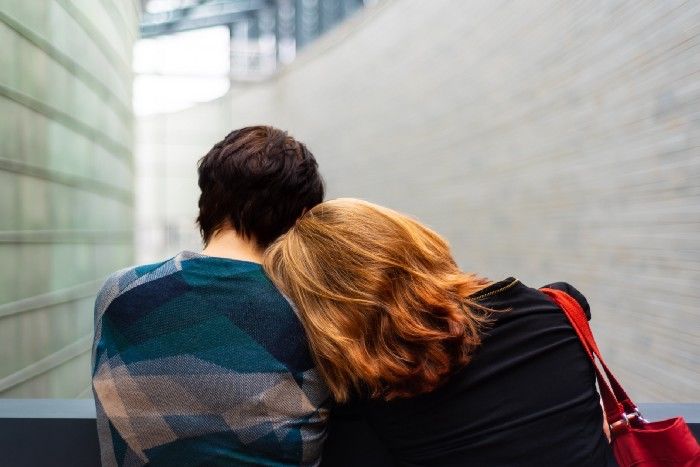Understanding The Origins Of Our Desires
“If we are willing to stand fully in our own shoes and never give up on ourselves, then we will be able to put ourselves in the shoes of others and never give up on them.” ― Pema Chödrön, Start Where You Are
What does it mean to not give up on yourself? I understand it to mean owning your weaknesses and shadows and not stowing them away because they don’t feel good. It requires accepting yourself as you are, not as you like yourself to be.
It’s easy to be happy when everything is smooth sailing but what if we are still unhappy despite our needs being met? Do you want to entrust your happiness to a particular state of being every time? Don’t you see this is not a way to live because we are always hoping life will be a certain way before we can be happy?
It is possible to achieve happiness amidst darkness and despair. Happiness is a choice that requires accepting our circumstances and not buying into some ideal that life will be better when our needs are met.
Have you noticed when you get what you want, there is always something more the ego craves? It’s not your fault because it is the role of the ego to want more. It is never satisfied because it hinges its survival on craving and desire.
It is what the Tibetan Buddhist Pema Chödrön refers to in Start Where You Are: How to Accept Yourself and Others: “Ego is not sin. Ego is not something that you get rid of. Ego is something that you come to know — something that you befriend by not acting out or repressing all the feelings that you feel.”
This cycle leads to suffering because we are like children, always wanting more to ensure our happiness. We cry and throw tantrums when we don’t get what we want and when it finally arrives, we are momentarily happy before longing for the next thing.
Think about this in your own life. Have there been situations where you yearned for something and when it arrived, you craved the next thing? It’s human nature to want what we don’t have, but surely we can break this cycle by understanding ourselves better?
I believe it lies in better understanding our desires and our egoic needs. Zen Buddhism advocates against pursuing pleasure (desires) since they can never be met.
Perceiving our negative emotions through the eyes of compassion and kindness is the way out of suffering. This is a difficult concept for many to contemplate because self-compassion is still a foreign idea for us to practice in the West.
Attend To The Emotions That Need Our Attention
“Being human is not about being anyone particular way; it is about being as life creates you — with your own particular strengths and weaknesses, gifts and challenges, quirks and oddities.” ― Kristin Neff
Self-compassion means to be intimate with our emotions and create a space of healing and love, instead of anaesthetising it with: alcohol, material objects, harmful activities or toxic people.
It requires coming to terms with our darkness and heavy emotions. These are our childhood wounds calling us to sit with them instead of running from them. I liken it to listening to music and constantly pausing the songs to attend to other matters.
We are not appreciating the music but interrupting it to divert our attention to something else. This happens when we defer our childhood traumas, by occupying ourselves in something other than the emotions that need our attention.
Is this something you’re willing to explore? Will you to take the time to make space to be with yourself regularly? Your answer will give you an insight into whether you are committed to your healing and transformation or whether you delay the process because of the pain associated with it.
It is my experience coaching people over the years that they give up on themselves too soon. Regrettably, they give up on other areas of their lives too instead of processing the pain.
When I encourage them to heal their wounds, they realise they have been running away from their pain their entire life. It is then they are willing to process the pain of the past.
Whilst it is not a pleasurable experience, we can transform our pain and integrate it into the wholeness of our core nature. We realise these experiences do not define us but appreciate that beneath the pain of regret or disappointment, is the sweetest joy and love that knows no bounds.
Once we stop running from ourselves, we are ready to be intimate with an expansive love that dwells within us. This love never disappeared but was obscured by the disentangled beliefs concealing our true nature.
Therefore, to stand fully in our own shoes and not give up on ourselves is a journey of self-enquiry and self-realisation. We become curious about who we really are and peel back the layers, to reveal an exquisite flower blossoming before our very eyes.
We come to love ourselves unconditionally and this realisation echoes far and wide, so all who come into contact with us can feel the radiance of this love blooming.
This is not a fairy tale about falling in love with ourselves but removing the layers that prevent us knowing our true worth. Knowing this, I invite you to journal what you think is holding you back in your life right now? What is standing in the way of your true happiness?
Are you willing to own your darkness? Once we stop giving up on ourselves, we will understand that beneath our suffering is a sweet, innocent child yearning to be held in the arms of love.









